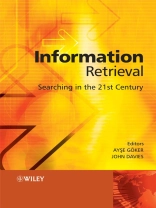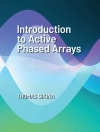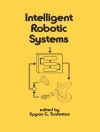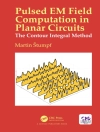This book is an essential reference to cutting-edge issues and
future directions in information retrieval
Information retrieval (IR) can be defined as the process of
representing, managing, searching, retrieving, and presenting
information. Good IR involves understanding information needs and
interests, developing an effective search technique, system,
presentation, distribution and delivery. The increased use of the
Web and wider availability of information in this environment led
to the development of Web search engines. This change has brought
fresh challenges to a wider variety of users’ needs, tasks,
and types of information.
Today, search engines are seen in enterprises, on laptops, in
individual websites, in library catalogues, and elsewhere.
Information Retrieval: Searching in the 21st
Century focuses on core concepts, and current trends in the
field.
This book focuses on:
* Information Retrieval Models
* User-centred Evaluation of Information Retrieval Systems
* Multimedia Resource Discovery
* Image Users’ Needs and Searching Behaviour
* Web Information Retrieval
* Mobile Search
* Context and Information Retrieval
* Text Categorisation and Genre in Information Retrieval
* Semantic Search
* The Role of Natural Language Processing in Information
Retrieval: Search for Meaning and Structure
* Cross-language Information Retrieval
* Performance Issues in Parallel Computing for Information
Retrieval
This book is an invaluable reference for graduate students on IR
courses or courses in related disciplines (e.g. computer science,
information science, human-computer interaction, and knowledge
management), academic and industrial researchers, and industrial
personnel tracking information search technology developments to
understand the business implications. Intermediate-advanced level
undergraduate students on IR or related courses will also find this
text insightful. Chapters are supplemented with exercises to
stimulate further thinking.
लेखक के बारे में
Ayse Goker
Dr. Ayse Goker is a senior academic at City University London. Her
research since the early 90s has focused on developing novel search
techniques and environments, with an emphasis on personalised and
context-sensitive information retrieval and management systems.
These occur particularly within mobile and wireless computing, and
also in bibliographic and web environments. Her skills are in
identifying user needs and developing innovative systems that meet
them. In international collaborations she has also been successful,
with extensive experience in designing projects and managing teams
to implement them. On the teaching side, Ayse has developed course
modules in information systems on several degree programmes at both
postgraduate and undergraduate levels.
Ayse is also a company co-founder of Ambie Sense Ltd, a mobile
information system company. This project began as the Ambie Sense
EU-IST project at Robert Gordon University, Aberdeen where she was
a Reader and project leader. She holds a lifetime Enterprise
Fellowship from the Royal Society of Edinburgh and Scottish
Enterprise. More recently she was selected for and completed the
Massachusetts Institute of Technology (MIT) Entrepreneurship
Development Program in Boston, USA.
In her profession, she has been the Chair of the British
Computing Society’s Specialist Group in Information Retrieval (BCS
IRSG) (2000-2005). She was recognised for the totality of her
endeavours by becoming a finalist in the Blackberry Women &
technology Awards (2005) for Best Woman in Technology
(Academia).
John Davies
Dr John Davies leads the Semantic Technology research group at
BT. Current interests centre around the application of semantic web
technology to business intelligence, information integration,
knowledge management and service-oriented environments. He is
Project Director of the 12m ACTIVE EU integrated project. He
co-founded the European Semantic Web conference series. He is also
chairman of the European Semantic Technology Conference and a
Vice-President of the Semantic Technology Institute. He chairs the
NESSI Semantic Technology working group. He has written and edited
many papers and books in the areas of the semantic technology,
web-based information management and knowledge management; and has
served on the program committee of numerous conferences in these
and related ar4eas. He is a Fellow of the British Computer Society
and a Chartered Engineer. Earlier research at BT let to the
development of a set of knowledge management tools which are the
subject of a number of patents. These tools were spun out of BT and
are now marketed by infonic Ltd, of which Dr Davies is Group
Technical Advisor. Dr Davies received the BT Award for
Technology Entrepreneurship for his contribution to the creation of
infonic.












